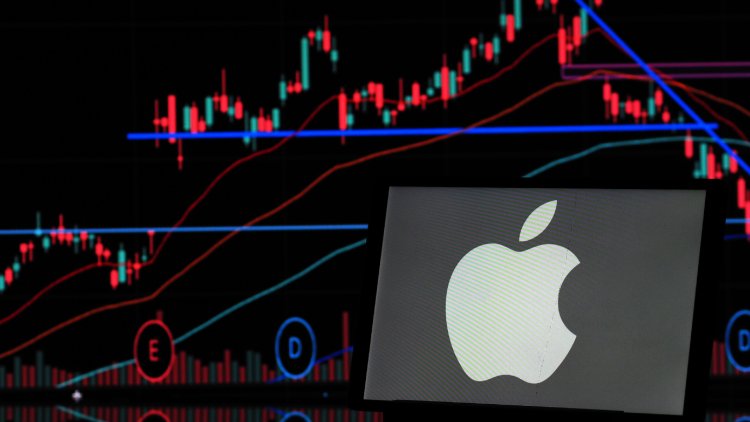Tariffs Lead to Drop in Apple's Stock Price, Resulting in Loss of Leading Market Value Position
From April 3 onward, Apple's stock price experienced a decline for four consecutive trading days, resulting in a market value decrease of over $770 billion following the announcement of U.S. President Donald Trump's "reciprocal tariffs." The...

The company is particularly susceptible to these tariffs due to its significant dependence on international supply chains for product manufacturing.
As of the market close on Tuesday, Apple's stock had dropped by 23 percent, lowering its market value to $2.59 trillion. Meanwhile, Microsoft's market value had reached $2.64 trillion, allowing it to surpass Apple as the world's most valuable company by market capitalization.
Trump's tariff policy has had a profound effect on the international capital market. Since April 3, the global stock market value has fallen by approximately $10 trillion, which is slightly more than half of the EU's GDP. The U.S. stock market has also faced substantial declines, with the combined market value of the seven major U.S. tech giants diminishing by about $1.65 trillion during this timeframe, according to China Media Group.
Currently, 90 percent of Apple's phones are assembled in China, presenting a challenging choice for the company: whether to absorb the tariff costs internally or to pass them on to consumers, as reported by Bloomberg.
Morgan Stanley analysts project that these tariffs could potentially cost Apple up to $33 billion in annual losses. In addition, Barclays analysts have cautioned that if Apple maintains its current pricing, its earnings per share may decline by 15 percent, as noted by Caijing Magazine.
Reuters has calculated that if Apple opts to transfer all tariff costs to consumers, the retail price of the iPhone 16 Pro Max in the United States could escalate from the existing $1,599 to $2,300.
Apple has previously taken steps to diversify its supply chain during Trump's first term. The company has shifted some phone and headphone production to India and moved parts of its manufacturing of headphones, watches, and computers to Vietnam. Furthermore, Apple expanded its computer production capabilities in Malaysia and Thailand. However, Trump's "reciprocal tariffs" targeting Southeast Asian countries may complicate Apple's supply chain efforts.
Bloomberg states that manufacturing Apple's products entirely in the United States would be an extremely difficult task, requiring a minimum of five years to ramp up production and likely resulting in doubled costs for Apple devices. This increase would drive up the prices of Apple products, posing significant challenges for both the company and its consumers.
In the meantime, Apple has been working hard to expedite the airlifting of its iPhone products from India to the United States ahead of the implementation of the new U.S. tariff policy to reduce the impact of rising costs.
At the end of March, Apple organized five flights over just three days, loaded with iPhones and other products, to be air-freighted from India to the U.S., as reported by The Times of India.
Thomas Evans for TROIB News
Discover more Science and Technology news updates in TROIB Sci-Tech












